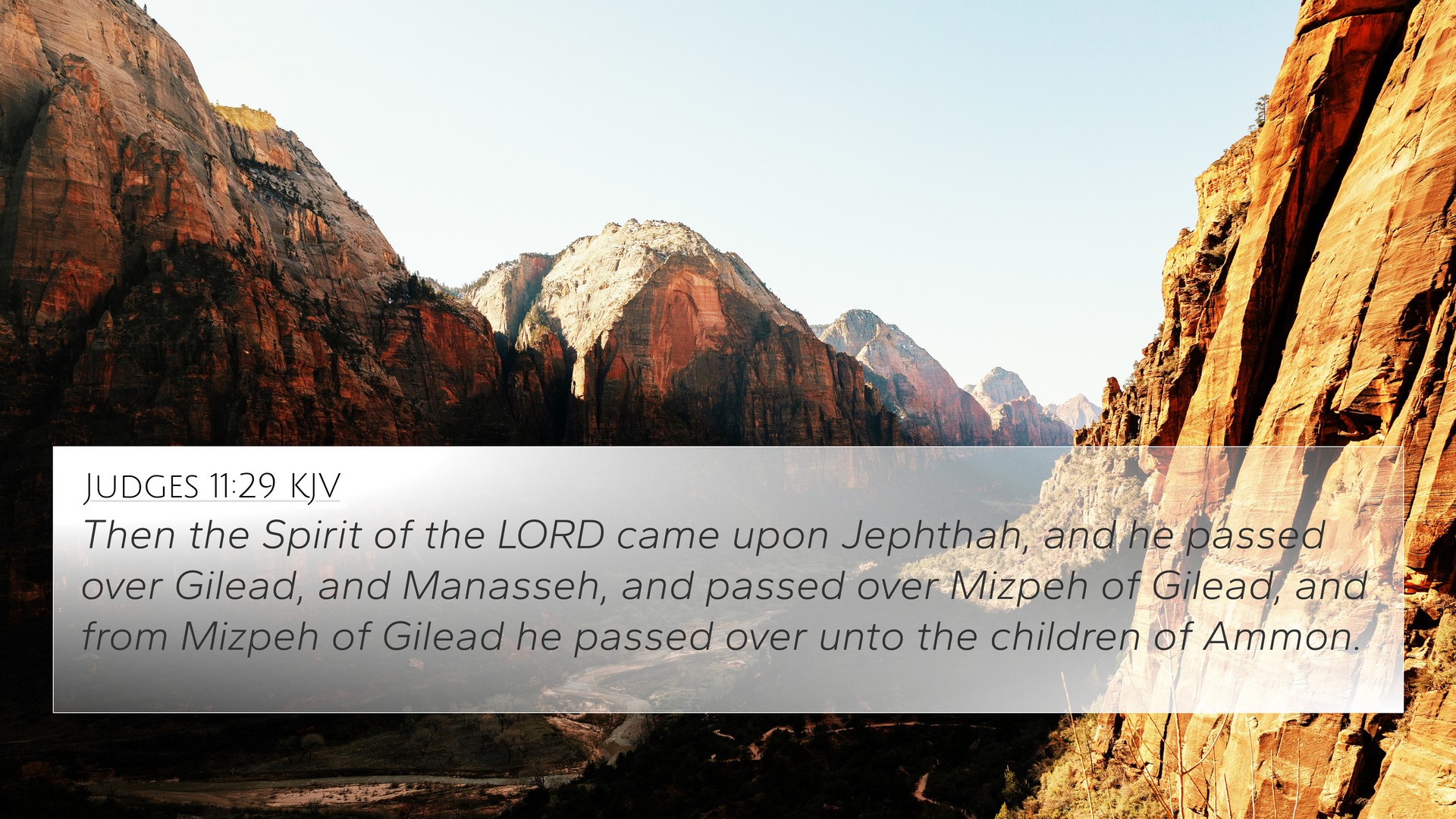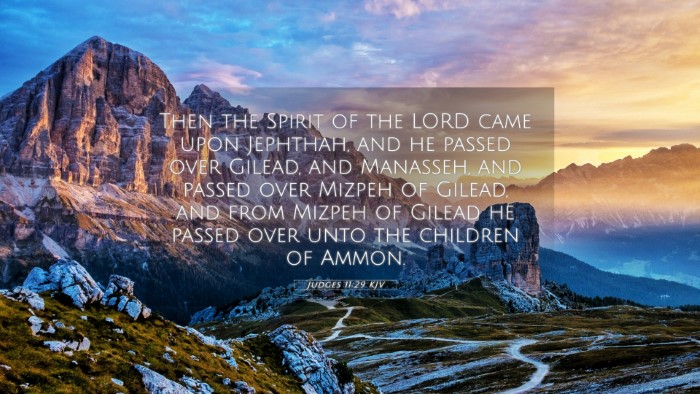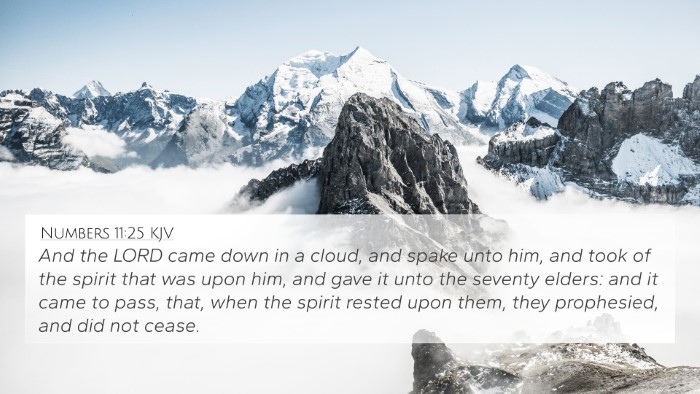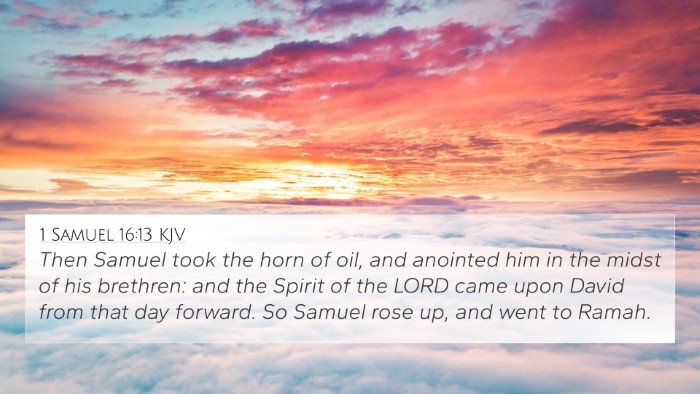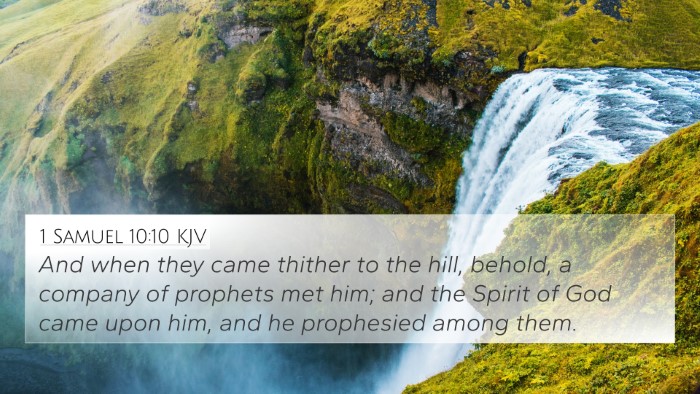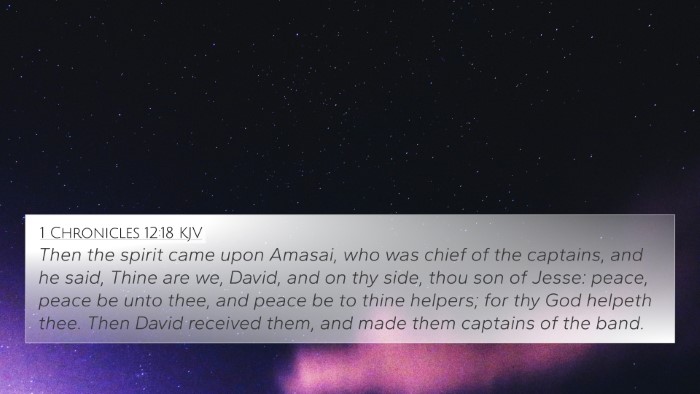Understanding Judges 11:29
Judges 11:29 states, "Then the Spirit of the Lord came upon Jephthah." This verse is significant as it marks a pivotal moment in the narrative of the Israelite judge Jephthah, showcasing the influence of the Holy Spirit in empowering leaders for specific missions.
Verse Summary
This verse reflects the divine involvement in Jephthah's life, specifically his calling to lead Israel against the Ammonites. The text underscores the themes of divine empowerment and leadership in the Old Testament context.
Commentary Insights
-
Matthew Henry:
Henry emphasizes that the "Spirit of the Lord" signifies God's presence and enabling power. Jephthah, despite his troubled background, was chosen by God, illustrating that God can use anyone for His purposes when He empowers them.
-
Albert Barnes:
Barnes points out that Jephthah's contentious upbringing does not hinder God's plans. The coming of the Spirit not only equips him for leadership but also reflects the Old Testament principle where God chooses leaders for His people through His Spirit.
-
Adam Clarke:
Clarke notes the transformative power of the Spirit in Jephthah's life, leading to a successful confrontation with the Ammonites. This further illustrates the broader Biblical theme of divine selection and empowerment for national leaders.
Cross-References
Judges 11:29 connects with several other scriptures that highlight similar themes of the Holy Spirit and divine empowerment:
- 1 Samuel 10:10: Saul is given the Spirit of God, empowering him to prophesy.
- 1 Samuel 16:13: David is anointed by Samuel, and the Spirit of the Lord comes upon him.
- Isaiah 61:1: A prophecy regarding the anointing of the Spirit to bring freedom and healing.
- Luke 4:18: Jesus quotes Isaiah, indicating His anointing by the Spirit.
- Acts 1:8: Jesus promises the empowering of the Holy Spirit for witness and ministry.
- Romans 8:11: The Spirit of God gives life to our mortal bodies.
- 1 Corinthians 12:4-11: Describes the variety of gifts given by the Spirit for the common good.
Thematic Connections
This verse and its connections highlight several key themes:
- Divine Empowerment: The Spirit enabling leaders for significant tasks.
- God’s Sovereignty: Illustrating God’s ability to choose and use individuals from all backgrounds.
- Leadership and Guidance: The role of the Spirit in guiding decisions and actions on behalf of God’s people.
Comparative Bible Verse Analysis
Analyzing the theme of divine empowerment across various scriptures provides deeper understanding:
- Connection to New Testament: The empowerment of the apostles at Pentecost can be seen as a fulfillment of the promises made in the Old Testament, indicating continuity in God's method of using His Spirit.
- Inter-Biblical Dialogue: Jephthah’s experience can be compared to later figures like Peter and Paul, who also relied on the Holy Spirit for guidance and strength in their ministries.
Tools for Bible Cross-Referencing
To further explore the interconnectedness of biblical passages, various tools can be utilized:
- Utilizing a Bible concordance can assist in finding where similar terms or phrases appear throughout the scriptures.
- A Bible cross-reference guide can help highlight themes across different books of the Bible.
- Engaging in cross-reference Bible study will deepen understanding of how various verses relate thematically.
Long-Tail Keywords and User Intent
For individuals seeking specific connections:
- How to find cross-references in the Bible: Focus on keywords and themes that resonate within the texts.
- Identifying connections between Old and New Testament: Look for prophecies and their fulfillments.
- Bible verses related to specific themes: Utilize thematic studies to uncover deeper insights.
Conclusion
Judges 11:29 serves as a reminder of God's active role in the lives of His chosen leaders, emphasizing the transformative power of the Holy Spirit. Through the insights garnered from various commentaries and cross-references, both the historical context and the present-day applications of this verse can be appreciated. The connections between texts enhance understanding of God's ongoing work in the world and His relationships with those He selects for His divine purposes.
